The Dramatic Role of the Outer Planets by Sesh Venugopal
Article by Sesh Venugopal
Of all the considerations in Western astrology, the influence of the outer planets Uranus, Neptune, and Pluto stands head and shoulder above everything else. The aspects, transits and progressions of the outer planets to the inner planets and points are undeniably and dramatically significant in the analysis of a horoscope.
Uranus is the fastest moving of the outer planets, spending about 7 years in a sign. Still, it spends almost three times as much time in a sign as Saturn. Neptune spends about 14 years in each sign, twice as long as Uranus, and Pluto, even longer. The entire orbit of Pluto around the Sun takes about 248 years, but given its extremely elliptical movement, it runs through some signs much faster than others. Pluto entered Sagittarius in early 1995, and is about to leave Sagittarius at the end of 2008, having stuck around for about 14 years. In marked contrast, Pluto spent about 26 years in Cancer. The natal sign placement of the outer planets will be shared by an entire generation of people, and is therefore of little personal consequence. On the other hand, their impact on the inner planets and the angles by aspect must be taken into strongest consideration in order to do justice to the horoscope.
Uranus is primarily an energy of differentiation and individuation. A strong Uranus can make a person follow their own path, whatever the consequence. He or she wants to be diifferent from others, stand out from the crowd. Because the person doesn’t want to blend into a group, he or she may live on the margins of society. If the chart is strong overall to endow status, then the person may be an inventor, a scientist, or a
revolutionary of some kind, In these cases the marginalization is compensated for by the reward of acclaim or otherwise satisfaction in being what one is. If the chart does not support by tempering the individual in other respects, or endowing her with special skills to make it, the Uranus factor could be so disruptive as to make life undeniably chaotic, and hard to live. Uranus also represents excitement, shock, abruptness, and disruption,
and simply anti-anything.
Uranus is the antithesis of Saturn. Saturn is orthodox, Uranus is iconoclastic. Saturn plays by the rules, Uranus says what rules? Saturn builds structure, Uranus tears it down. A person with a strong Saturn and a weak Uranus in the chart, or a person who sides with the Saturn more than Uranus, will find the Uranian energy to be random and disruptive, and the Saturnian energy stable and safe. On the other hand a person who sides more with the Uranian energy that with the Saturnian will find the Saturnian type latter dull, boring, and stifling, while finding the Uranian refreshing, energizing, and lively.
The Uranian energy is hard to handle and hard to own because the world is Saturnian in that it depends on structure and stability for its very existence; if the Uranian energies of chaos are let loose without restraint, then where would we all be? So the Uranian is marginalized. Having a strong Uranus in the chart and a weak Saturn is generally an indicator of a troubled life—the person wants to belong, but doesn’t know quite how, and is certainly not about to respect “authority” and “rules” just because they are there. A good does of Saturn is necessary for Uranus to turn its disruption into inventiveness, its iconoclasm into progress, its weirdness into cool. But it all takes time, Saturnian time.
The Dalai Lama’s horoscope () offers a wonderful instance of this Saturn-Uranus balance in action. His Moon is opposite Saturn, but trine Uranus. Every time he says something serious, he lightens it up with a small joke or simply with a most disarming smile, a self-deprecating stance that has served him well in driving home his message. He is serious-minded, but never stuffy.
Madonna’s life shows a distinctly Uranian slant. Her natal Uranus is square the MC. She made a career made out of rebellion, bucking adopting positions calculated for maximum offense, breaking through all kinds of barriers (even taking on the Pope), going where no woman artist had gone before. Einstein’s Uranus square his Sagittarian Moon to within a degree, the perfect picture of the genius, the “mad scientist”, quite simply living and thinking in a world of his own, with a fabled Uranian instinct for the grand design of life that lifted him high above the rest of us.
Deepak Chopra’s Uranus is within minutes of an exact opposition to his MC. He started out as a medical doctor but bucked the system and moved out into alternative health. The Uranus influence in his career made itself felt when he wrote his book, “Ageless Body, Timeless Mind: The Quantum Alternative to Growing Old”, going far afield of his beginnings. Hillary Clinton’s Uranus is within 4 minutes of conjunction to her ascendant. Independent, doughty, a life given to an extraordinary ambition, daring to be the first woman President of the United States. Speaking of women leaders, Indira Gandhi, the long-serving Indian Prime Minister, a woman who ruled a nation of hundreds of millions, has Uranus is almost exactly opposite the ascendant.
As sharp and clear as Uranus is, Neptune is fuzzy, hard to get a grip on, amorphous, simply not here, delusional, even magical. It can endow a person with extreme sensitivity and a capacity to feel things he cannot express. It’s hard to pin down the energy of Neptune. Loss, blindness, disappearance are other manifestations of Neptune, and all of these arise from the idea that it represents things that are not there, or difficult to grasp. Neptune finds constructive expression in fantasy and imagination that can be brought down to earth (with a strong Saturn), in an acute creativity in the arts and music that can be harnessed (with a strong Venus or Moon), in poetry and prose of the particularly lyrical variety (with Mercury) and in dance and sports that require sinuous movement (with Mars).
The famous Indian playback singer Lata Mangeshkar has a Neptune-Venus conjunction powering her career via a close opposition to her MC. For long years the divine purity of her voice enthralled millions. When Lata Mangeshkar sang, you could hear the voice of God pouring through her. (Enthrallment is but delectable slavery, as Neptunian as hypnotism.) The prolific writer Stephen King has Neptune tightly opposite MC, and, this Neptune is also conjunct Mercury. His phenomenal career is built on stories of the supernatural, which start with the simplest of circumstances, but gradually morph into a bewildering brew of extreme pressure, psychic displacement, and madness. Often, there is also redemption: either the central character redeems himself, or, by sacrifice, redeems others. Redemption and sacrifice are both Neptunian expressions. Apart from the dramatically prominent Neptune, King has a very tight Uranus-Sun square, and a Saturn-Pluto conjunction trine his Moon.
It is illuminating to think of Neptune as the antidote to Saturn. Where Saturn creates form, Neptune washes it away. While Saturn restricts and limits, Neptune opens up the floodgates. Drugs and alcohol are Neptunian in their effect, inducing feelings of complete freedom and disappearance from this Saturnian “real” world. An unchecked Neptune is dangerous in the extreme, so when looking at Neptune, we must also look at Saturn to see how they balance out each other. But one is more equal than the other. As troublesome as Saturn may be, its energies can still be dealt with, and with age, a certain respectful friendship can even be forged with it. With Neptune, if things get out of hand, they get way out of hand, and a life can be near impossible to get back on track once it has been hopelessly derailed by Neptune. Living with a strong Neptunian influence requires tremendous grounding, and a great amount of self-realization.
Neptune connects you back to the source. It wants you to return to the state of grace, to the paradise from which we have been cast out. It can engender deeply mystical or spiritual tendencies. Neptune instills faith, it uplifts and it transcends, as to those who can imagine, it offers vivid glimpses of perfection in even the most prosaic of things. It takes the imagination, hope and vision of Neptune to escape the grinding pull of Saturnian gravity.
And then there is Pluto. Its influence is felt as a tremendous need to control one’s life, which often leads to controlling one’s environment. This results in imposing one’s will in a most autocratic, take-no-prisoner’s way on oneself and others. There is domination, power and mastery. There could be scheming and plotting, but also such major transformations as to break life into pieces and put them back together in a completely different way. Pluto can be manipulative and underhanded, because of is tendency to assert control in secrecy.
Pluto thrives in getting to the bottom of things, thus making for a good researcher or psychologist. The emotional realm is particularly appropriate, for ultimately Pluto’s calling is to journey into the underground of the self, to bring upon the ultimate self-realization. On this journey, everything that is unnecessary to the realizationof the self is discarded, so the inner flame may burn bright and clear. Pluto can elevate to great heights, or bring one down to the most abysmal lows – it is nothing if not extreme in its influence. Death is a motif that is well understood by the Plutonian person, for this person likely dies many deaths during a lifetime, by changing and evolving, like a moulting snake that wriggles out of its skin to make way for a new, improved covering with definite regularity.
Pluto can make a person ruthless and relentless in their quest for control and domination. There is one area of life where this is allowed, and is even a positive thing, and that is competitive sport. Two great sports legends of the 20th century both have strong Plutos and a killer instinct that took them to the top of their game where they were unconquerable. They are Bobby Fischer, the world chess champion, and “His Airness”, the basketball great Michael Jordan. Bobby Fischer’s Pluto is within 5 degrees of conjunction to his ascendant, opposite his Mars, and square his Moon. In a paen titled “The Bobby Fischer We Loved,” Larry Evans writes, “Bobby’s most important strength as a competitor was his fierce killer instinct. He was uncompromising; he hated draws and fought most of his games to the bitter end.” Michael Jordan’s horoscope has Pluto square the Moon with a little over 3 degrees of exactness. “In Chicago, killer instinct was defined by Michael’s attitude,” said Steve Kerr, who play alongside Jordan in the three-times champions Chicago Bulls team.
Pluto contacts to the Sun, Moon, or Mars, endows a person with an uncompromising attitude and an inflexible will. With the Moon particularly, there is also a depth of emotion that, coupled with the courage to plumb it, is unmatched. John Lennon’s Pluto-Moon opposition is within a degree of exactness, and it is clear that he sought to effect a profound transformation in himself and the world around him. Tiger Woods has Pluto square Sun, and here again is the sense of such complete domination. And Tiger Woods’ friend Roger Federer, who many have said may be the greatest tennis player that ever lived, has Pluto square Mars. Both Tiger and Federer are known to put a good amount of scare into their opponents even before getting on the field.
On a completely different terrain reigns the queen of talk shows, Oprah Winfrey. She has Pluto almost exactly square Mars. This Mars is conjunct Moon, somewhat widely, but the feel of the chart suggests that the Moon is definitely influenced by the Pluto square through Mars. Oprah is massively influential and powerful: with one word she can take a book that has lurked unnoticed and taken it straight to the top of the bestsellers list. Witness the ascent of Eckhard Tolle’s, “A New Earth.” Before Oprah picked it for her book club, it had sold about a half million copies in the three years since publication. Now Penguin is printing a million copies a week to keep up with the demand. And Oprah Winfrey is the richest woman alive. Pluto symbolizes power, reach, and influence on a grand scale.
The aspects of the outer planets to the Sun and Moon are extremely important Uranus aspecting the Sun links the driving energy with all things Uranian: independence, freedom, marching to a different drummer, and so on. Here, the Sun’s sign becomes important because if the Sun is in a conservative sign, this will play out differently than if it is not. Libra, Cancer, and Capricorn are conservative and traditional—if the Sun is in these signs, the combination will play out in less obvious ways, taking longer to manifest, in such a way that even when doing things that are different from the mainstream, there is a sense that the person is functioning within the system. She earns the right to be different by paying her dues first.
Uranus aspecting the Moon will be rather more obvious and immediate about the Uranian qualities, because the Moon functions in an instinctive, unconscious manner. Abruptness, quirkiness, isolation, and detachment may be pronounced. Emotions will be fraught with unpredictability, excitement, perhaps hysteria. Asocial or anti-social behavior may manifest. Again, one must look at the Moon’s sign, just as for the Sun.
Any aspect of Neptune to the Sun or the Moon brings the Neptunian qualities of sensitivity, impressionability, bewilderment, inflation, vision, and imagination to the core personality. Such a person senses the environment in much more subtle ways than others, especially when the Moon is involved. The heightened sensitivity can make for an extreme thin skin, so that hurts are felt much easily. Circumstances are seen in extremes, extreme bad and extreme good. Idealization and a craving for perfection dominate the personality.
Here again, the Sun or Moon’s sign position becomes important. The Sun in Capricorn (ruled by Saturn) is able to integrate Neptune’s influence better, and not let it run away with the person. On the other hand, a Pisces Sun (Neptune ruled) can make for an extremely unrealistic view of life, inviting great disillusionment and disorder. It is as if the life has no mooring, so that circumstances can toss the person this way and that, and it is difficult to make headway down a clear path. As you may imagine, Moon in Pisces aspected by Neptune would be even more challenging, given the Moon’s own fickleness. The person may see extraordinary visions, and may have a tough time reconciling these visions with reality.
Pluto can be both overly outward in expression, as well as extremely inwardly directed, The Sun in Cancer (inward) is as likely to get a big push to direct its energies in a determined, intense manner to the pursuit of outer goals, as is the Sun in Aries (outward) directed inward by Pluto to examine the inner life. In this way, the Plutonian energy is itself capable of being displayed and integrated in a spectrum of possibilities.
People whose natal charts do not show an unusually prominent placement of the outer planets do not feel their forceful push and pull, and so generally lead a more placid life. But even for such people, a transit or progression of the outer planets to the Sun, Moon, or the angles can bring about a radical transformation. In fact, they are more likely to feel the disruptive chaos that the outer planets can unleash because they have no experience of dealing with such energies. The outer planets function outside the realm of human rules and the human sense of morality, of good and bad. When your world turns upside down and you ask, “Why me?” you can guarantee that an outer planet is at work. Uranus is shockingly direct, and Pluto is crushing, but Neptune is gentle and even the sea change it ultimately brings works itself into the life slowly and subtly.
People with prominently configured outer planets typically only come into their own in their forties and fifties. With maturity, grounding, and life experience, they are able to channel the powerful outer planet energies constructively. From outside the margins of society they move toward the center, working from the inside, raising the awareness of everyone around them, and in the process finding their own place within humanity.

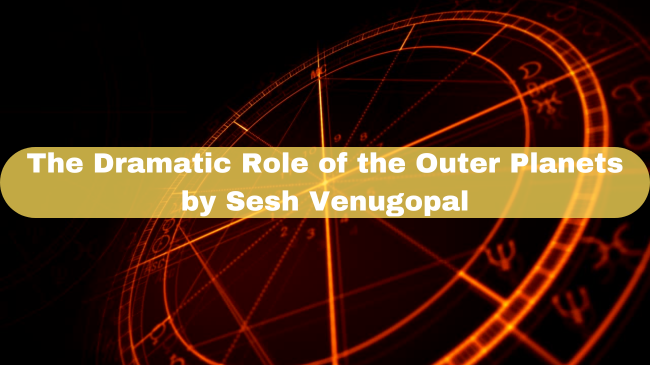


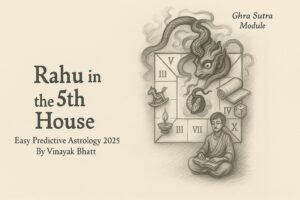
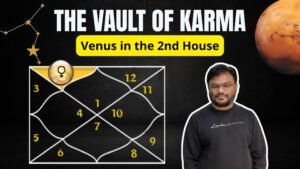
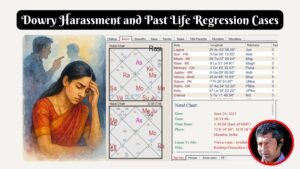


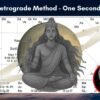



Leave a reply
You must be logged in to post a comment.